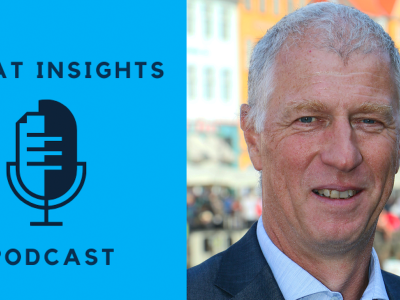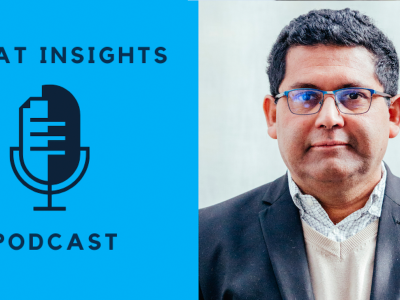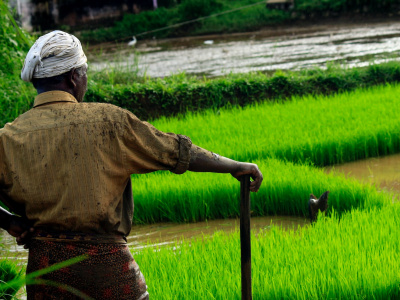
Transforming food systems: How easy is it?
It may be an exaggeration to state that food systems are stuck in their current status quo and nothing will change. But it is equally naïve and perhaps more dangerous to expect changes that will magically make all problems disappear and nudge food systems in the direction needed for sustainability.
The need for a Great Transformation of our food systems is widely acknowledged by scientists and policymakers. For instance, in an international report by the EAT-Lancet Commission on Food, Planet and Health, a group of 37 experts concluded, “global food systems can provide win-win diets to everyone by 2050 and beyond. However, achieving this goal will require… nothing less than a Great Food Transformation.”
Beyond the general consensus that our food systems are not in good shape and that something needs to be done, the roadmap toward this Great Transformation is still unclear. In fact, there is a serious risk that no real change will happen at all, and business as usual will prevail.
For instance, we know that, on average, Europeans eat too much red meat, and this excessive consumption has detrimental effects on their health. High consumption of red meat is associated with health problems including type 2 diabetes and cardiovascular disease, among others. It is also bad for the environment, as the meat industry is a large contributor to climate change. Yet, the recent “Less Meat, More Life” campaign launched by the Spanish minister of consumer affairs was highly criticised by members of his own coalition government. In France, President Macron’s government criticised an initiative of the mayor of Lyon (from the Green Party) to remove meat from school lunch menus.
These kinds of attempts to establish healthier and environmentally friendlier diets and address important issues related to food systems often seem to be nipped in the bud, bringing us back to the business-as-usual scenario. This leads us to the question of whether fears that nothing will change are justified? Or are such concerns just an expression of an overly pessimistic discourse?
It would not be the first time that experts adopt a ‘catastrophe’ narrative strategically, in the hope of triggering more focused responses. Some years ago, for instance, a group of scientists declared that by the mid-21st century all fish will disappear from the oceans due to overfishing.
Fish, of course, is still there; and food systems will continue to change in the future. That is because food systems, like all social systems, keep evolving and changing, especially when they operate in a changing environment.
Transformations in the past
Human history provides plenty of examples of food systems transformation. Particularly influential were the Green Revolution and the adoption of high-yielding varieties in many developing countries in Asia and Latin America. The ‘supermarketisation’ of food systems is another – that is, the rapid establishment of foreign-owned supermarket chains in many parts of the world. We have seen a ‘homogenisation’ of crops and food supply; in other words, a tendency to derive more of the foods we eat from progressively fewer crops and animal species. The increasing use of genetically modified organisms (GMOs) in both lower and higher-income countries is another ongoing transformation. Clearly, our food systems have always been transforming and will continue to do so.
Because profitability is not sustainability
Is there cause to fear that the needed Great Transformation might not happen? I would argue that such fears are justified because the transformations we saw in the past are not necessarily of the same nature as the Great Transformation that we need now. There are two main reasons for this.
First, experts generally use ‘Great Transformation’ to refer not only to the scale and magnitude of the changes needed but also, and more importantly, to their normative nature. The Great Transformation is expected not just to bring any changes, but positive changes that lead to ‘better’ systems, possibly ones that contribute to the Sustainable Development Goals.
For this to happen, contrary to common belief, we cannot rely on technological innovations as a panacea to fix food systems. Technological innovations are driven by economic priorities and profitability, not by their potential benefits to societies and the environment. The patterns of transformation that characterise innovation processes – in food systems and elsewhere – are random and can lead to both desirable and less desirable outcomes. An example of a desirable outcome is when the Green Revolution helped reduce famine in the poorest countries of South Asia. A less desirable outcome, linked to the supermarketisation of food systems, is the disappearance of street vendors on which poor urban consumers (especially in slums) depend for their food security.
A second reason to doubt whether the Great Transformation will actually come about is the requirement it brings for more than just a few easy innovations. Positive changes that can counter or reverse the ‘negative’ changes that will occur anyway need to happen at all levels and in all subsectors of food systems, from seed selection to agrochemical production, transport, processing, retailing, marketing, consumption, waste management and so forth. We are talking about the need for a substantial number of innovations, all working together and all pushing the system in one direction. Some might argue that it is unreasonable to expect this perfect (positive) storm to ever happen. We can’t blame them for being sceptical.
In sum, it may be an exaggeration to state that food systems are stuck in their current status quo and that nothing will change. But it is equally naïve and perhaps even more dangerous to expect changes that will magically make all problems disappear and nudge food systems in the direction needed for sustainability. Like Mike Huckabee, former governor of the US state of Arkansas, stated a few years ago, “It is important that well-meaning critics understand that food companies are not focused on making people fat; they are focused on making money.” This is exactly my point. The market, left alone, is blind to sustainability.
About the author
Christophe Béné is a Senior Researcher at the International Center for Tropical Agriculture (CIAT) based in Cali. Colombia. He has 20+ years of experience in interdisciplinary research and advisory work in Africa, Asia and the Pacific, focused on poverty alleviation, food security and low-income countries’ economic development.
Twitter | Website
Read the full magazine issue
This article appears in the climate edition of ECDPM's Great Insights magazine – check out the full issue or the other articles and multimedia below.















